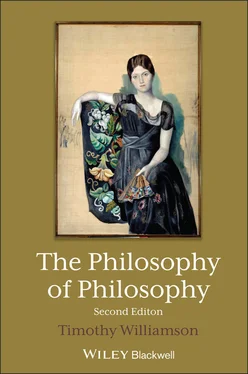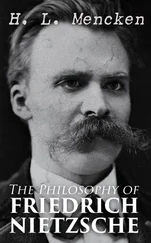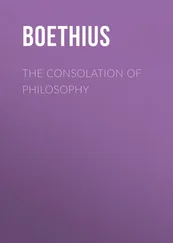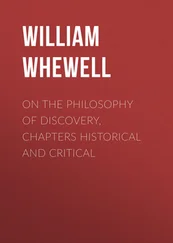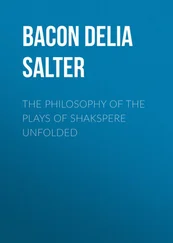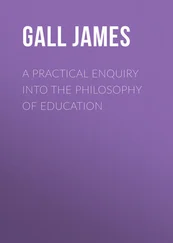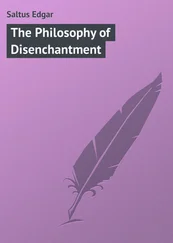1 ...7 8 9 11 12 13 ...31 The enlarged edition reprints the following previously published pieces, sometimes rearranged; for each, I was the sole author and all required permissions have been obtained, which I hereby acknowledge: “Replies to Kornblith, Jackson and Moore,” Analysis Reviews , 69 (2009): 125–35; “Replies to Ichikawa, Martin and Weinberg,” Philosophical Studies , 145 (2009): 465–76; “Plato Goes Pop,” Times Literary Supplement , 5529 (2009): 15; review of Robert Brandom, Reason in Philosophy , Times Literary Supplement , 5579 (2010): 22–3; “Philosophical Expertise and the Burden of Proof,” Metaphilosophy , 42 (2011): 215–29; “Reply to Peacocke,” “Reply to Boghossian,” “Reply to Stalnaker,” and “Reply to Horwich,” Philosophy and Phenomenological Research , 82 (2011): 481–7, 498–506, 515–23, and 534–42 respectively; “Three Wittgensteinians and a Naturalist on The Philosophy of Philosophy ,” in Richard Davies (ed.), Analisi: Annuario e Bollettino della Società Italiana di Filosofia Analitica (SIFA) 2011 , Milan: Mimesis (2011), 127–37; “What is Naturalism?” and “The Unclarity of Naturalism” in Matthew Haug (ed.), Philosophical Methodology: The Armchair or the Laboratory? , London: Routledge (2013): 29–31 and 36–8 respectively; review of Joshua Alexander, Experimental Philosophy: An Introduction , Philosophy , 88 (2013): 467–74; “Replies to Trobok, Smokrović, and Miščević on the Philosophy of Philosophy,” Croatian Journal of Philosophy , 13 (2013): 49–64; review of Paul Horwich, Wittgenstein’s Metaphilosophy , European Journal of Philosophy , 21 (2013): e7–e10; “How Did We Get Here From There? The Transformation of Analytic Philosophy,” Belgrade Philosophical Annual , 27 (2014): 7–37; review of Peter Unger, Empty Ideas: A Critique of Analytic Philosophy , Times Literary Supplement , 5833 (2015): 22–3; “Abductive Philosophy,” Philosophical Forum , 47 (2016): 263–80; “Philosophical Criticisms of Experimental Philosophy,” in Justin Sytsma and Wesley Buckwalter (eds.), A Companion to Experimental Philosophy , Oxford: Wiley Blackwell (2016): 22–36; “Model-building in Philosophy,” in Russell Blackford and Damien Broderick (eds.), Philosophy’s Future: The Problem of Philosophical Progress , Oxford: Wiley-Blackwell (2017): 159–73; review of Penelope Maddy, What Do Philosophers Do? Skepticism and the Practice of Philosophy , Journal of Philosophy , 114 (2017): 492–7; “Morally Loaded Cases in Philosophy,” Proceedings and Addresses of the American Philosophical Association , 93 (2019): 159–72; “Reply to Dennett, Knobe, Kuznetsov, and Stoljar on Philosophical Methodology,” Epistemology and Philosophy of Science , 56 (2019): 46–52; “Popular Philosophy and Populist Philosophy,” Daily Nous (2020), http://dailynous.com/2020/06/08/popular-philosophy-populist-philosophy-guest-post-timothy-williamson. Many of those pieces were indebted to various philosophers for their feedback. They are acknowledged at the relevant places in the text, since that is more informative.
I thank Marissa Koors, the acquisitions editor at Wiley-Blackwell, for first suggesting an expanded edition of the book to me, and for her patience, flexibility, and enthusiasm in facilitating its implementation, and Charlie Hamlyn, also at Wiley-Blackwell, for his detailed help in the later stages of the project.
Finally, as in the first edition, thanks above all to my wife Ana, who still does not let me forget what matters.
Part I Introduction
What can be pursued in an armchair?
Every armchair pursuit raises the question whether its methods are adequate to its aims. The traditional methods of philosophy are armchair ones: they consist of thinking, without any special interaction with the world beyond the chair, such as measurement, observation or experiment would typically involve. To do justice to the social and not solely individual nature of philosophy, as a dialectic between several parties, we should add speaking and listening to thinking, and allow several armchairs, within earshot of each other, but methodologically that brings philosophy little closer to the natural sciences. For good or ill, few philosophers show much appetite for the risky business of making predictions and testing them against observation, whether or not their theories in fact have consequences that could be so tested. Without attempting to define the terms precisely, we may put the difference to a first approximation thus: the current methodology of the natural sciences is a posteriori ; the current methodology of philosophy is a priori . What should we make of this difference?
Opposite reactions are possible. Crude rationalists regard philosophy’s a priori methodology as a virtue. According to them, it makes philosophical results especially reliable, because immune from perceptual error. Crude empiricists regard philosophy’s a priori methodology as a vice. According to them, it makes philosophical results especially unreliable, because immune from perceptual correction.
Few contemporary philosophers have the nerve to be crude rationalists. Given the apparent absence of a substantial body of agreed results in philosophy, crude rationalism is not easy to maintain. Many contemporary philosophers have some sympathy for crude empiricism, particularly when it goes under the more acceptable name of “naturalism.” However, that sympathy sometimes has little effect on their philosophical practice: they still philosophize in the grand old manner, merely adding naturalism to their list of a priori commitments.
A subtler response to naturalism, or empiricism, is to scale down the ambitions of philosophy. Holding fixed its a priori methodology, one asks what it could be good for. Not for answering ordinary factual questions, it is claimed: that is best left to the natural sciences with their a posteriori methodology. Nevertheless, what we already have in the armchair is the intellectual equipment we bring to a posteriori inquiry, our conceptual or linguistic competence. Perhaps philosophy can find some sort of legitimate employment by investigating, from within, what we bring to inquiry. Rather than trying to answer ordinary factual questions, it seeks to understand the very possibility of asking them – in some way, yet to be properly specifed, that does not involve asking ordinary factual questions about the possibility of asking ordinary factual questions. The “linguistic turn” in twentieth-century philosophy comprises a variety of attempts in that general spirit. Since confinement to an armchair does not deprive one of one’s linguistic competence, whatever can be achieved through exercise of that competence and reflection thereon will be a feasible goal for philosophy. If one regards thought as constituting a more fundamental level of analysis than language, one may generalize the linguistic turn to the “conceptual turn,” and consider what can be achieved through exercise of our conceptual competence and reflection thereon, but the outcome will be broadly similar: philosophical questions turn out to be in some sense conceptual questions.
Crude rationalists, crude empiricists, and linguistic or conceptual philosophers (those who take the linguistic or conceptual turn) share a common assumption: that the a priori methodology of philosophy is profoundly unlike the a posteriori methodology of the natural sciences; it is no mere difference between distinct applications of the same underlying methodology. One apparently distinctive feature of current methodology in the broad tradition known as “analytic philosophy” is the appeal to intuition . Crude rationalists postulate a special knowledge-generating faculty of rational intuition. Crude empiricists regard ‘intuition’ as an obscurantist term for folk prejudice, a psychological or social phenomenon that cannot legitimately constrain truth-directed inquiry. Linguistic or conceptual philosophers treat intuitions more sympathetically, as the deliverances of linguistic or conceptual competence. Of course, the appeal to intuitions also plays a crucial role in the overt methodology of other disciplines too, such as linguistics.
Читать дальше
